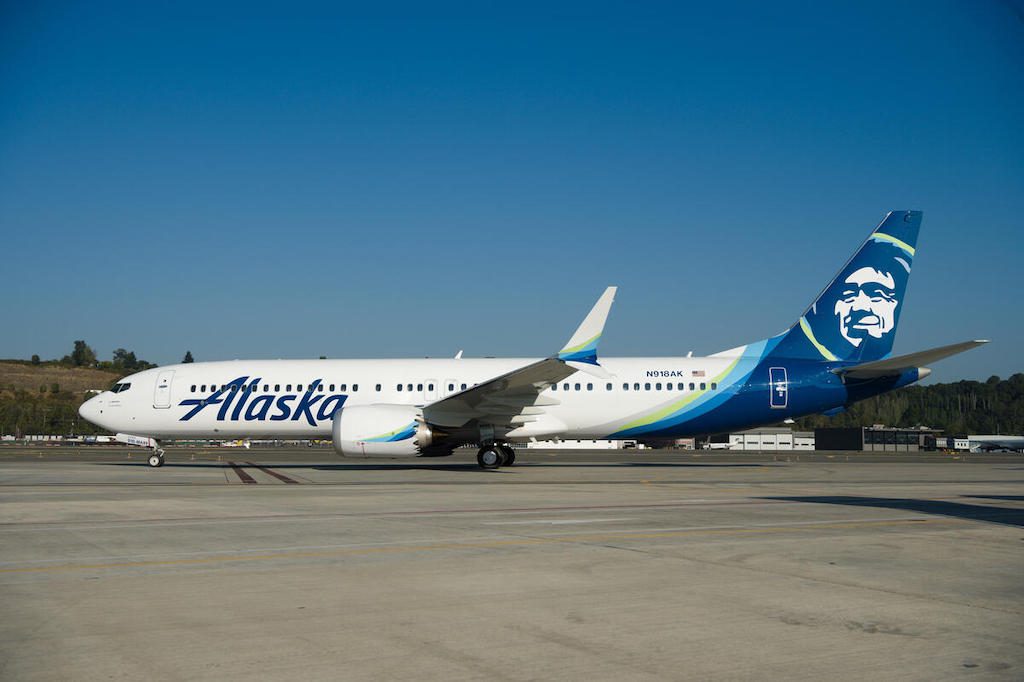A Breakdown of Carriers That Operate the Boeing 737 Max 9

Skift Take
After a section of an Alaska Airlines jet fell off, Boeing’s 737 plane is once again under scrutiny.
The specific model involved in the Alaska accident is the 737 Max 9, one of four Max subtypes Boeing sells to airlines around the world. Two of them, the 737 Max 7 and 737 Max 10, are awaiting FAA certification.
Another, the 737 Max 8, was involved in two fatal crashes in Ethiopia and Indonesia, which led the FAA to ground the aircraft for over two years. Since the FAA recertified the 737 Max 8 in November 2020, there have been no notable incidents with the aircraft.
While the 737 Max is one of Boeing's best-selling planes, the 737-9 is one of its least popular versions, primarily because the aircraft is not that much larger than the 737-8. The 737-9 has roughly 10 more seats than the 737-8 (220 versus 210), so most airlines opt for the 737-8 or the substantially larger 737-10, which has 230 seats.
There are 215 of the 737-9, flown by Alaska and United Airlines in the U.S., in service worldwide. Here is a breakdown of the operators that use the aircraft, according to Cirium Fleet Analyzer.
United Airlines
In operation: 79
On order: 7
United operates 79 737-9s in its fleet and has seven on order, along with 56 on option. The aircraft on option are either for the 737-8 or 737-9, but it’s unclear for which of the two subtypes until the orders are finalized.
The Chicago-based carrier is bullish on the 737 Max, as it placed an order for 100 737 Maxes in 2022, part of its bet that demand for international travel would continue to boom throughout the decade.
Alaska Airlines
In operation: 65
On order: 27
Alaska, which maintains a fleet composed entirely of 737 aircraft, has 65 737-9s in its fleet, with plans to order 27 more.
The Seattle-based carrier was one of the first to fully embrace the 737 Max shortly after the FAA said the planes can go into service, ordering 36 737 Maxes and phasing out its Airbus A320 fleet it had acquired through its merger with Virgin America.
Copa Airlines
In operation: 29
On order: 3
Copa flies 29 737-9s and has ordered three more. The Panama-based carrier has only two single-aisle plane types: the Embraer E190 and and the 737.
The carrier suspended 21 of its 737-9 fleet following the FAA order to temporarily ground certain 737-9s for inspection since it flies the plane to the U.S.
Copa placed orders for 61 737 Max aircraft in 2013, and first started with operating the 737-9. The orders were part of the carrier’s strategy to lower operating costs, while carrying more cargo and passengers, Copa CEO Pedro Heilbron told Skift in 2017.
Aeromexico
In operation: 19
Aeromexico currently operates 19 737-9s as part of its fleet and has so far not placed more orders for the plane.
Like Copa, Aeromexico, which also flies 737-9s to the U.S., also grounded its 737-9 aircraft for inspection after the FAA issued an emergency airworthiness directive.
After filing for bankruptcy in 2020, Aeromexico signed a letter of intent with the Dubai Aerospace Enterprise to lease 12 more 737 Maxes, increasing its fleet from 24 to 36 737 Maxes. At the time of the deal, it was unclear if Aeromexico would lease either the 737-8 or 737-9. The order happened as Mexico’s air travel market experienced a major comeback coming out of the pandemic.
Turkish Airlines
In operation: 5
Turkish Airlines has five 737-9s, and it currently does not have plans to order more. The carrier, which has ambitious growth plans, recently delayed its mega order of 600 aircraft — some of which included the 737 Max family aircraft — due to mounting production and quality issues with Airbus and Boeing’s newest models.
Turkish Airlines was not affected by the FAA’s order to temporarily ground 737-9s since it doesn’t operate the aircraft on routes to the U.S.
SCAT
In operation: 5
SCAT, a small Kazakh carrier that flies to major cities in Kazakhstan and neighboring countries, flies five 737-9s.
Icelandair
In operation: 4
Icelandair, a budget carrier that’s also Iceland’s flag carrier, operates four 737-9s.
The carrier has 14 of the more popular 737-8s and has plans to add three more of the aircraft to its fleet in the spring to add routes service to the Faroe Islands from May to October, along with more destinations, CEO Bogi Nils Bogason told Skift in July.
Lion Air
In operation: 3
On order: Not specified
Lion Air, an Indonesian low-cost airline, has three 737-9s in service with plans to order 174 either 737-9s or 737-8s (the subtype is not specified), one of the largest orders of the aircraft in the industry.
Flydubai
In operation: 3
On order: Not specified
Flydubai, a smaller airline owned by the Emirati government, operates 3 737-9s and has 106 737-9s or 737-8s on order. Like Lion Air and United, the subtype in the Flydubai order is not specified.
Airlines Sector Stock Index Performance Year-to-Date
What am I looking at? The performance of airline sector stocks within the ST200. The index includes companies publicly traded across global markets including network carriers, low-cost carriers, and other related companies.
The Skift Travel 200 (ST200) combines the financial performance of nearly 200 travel companies worth more than a trillion dollars into a single number. See more airlines sector financial performance.





